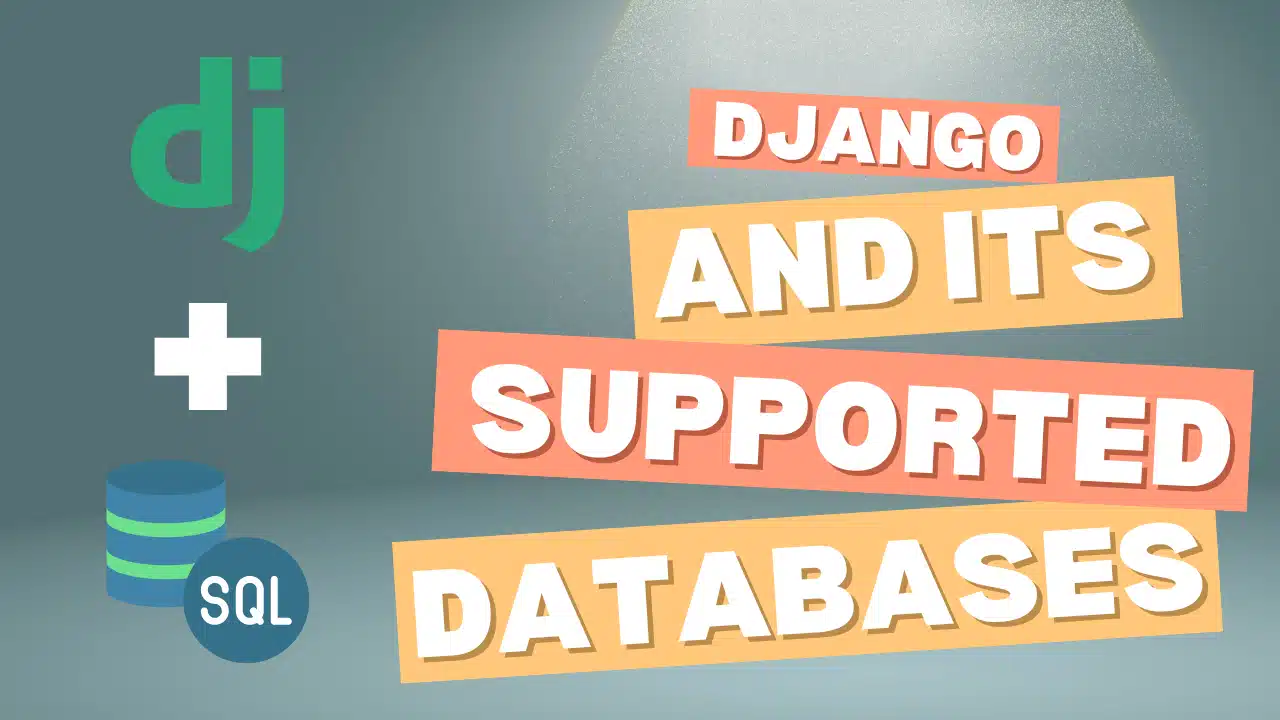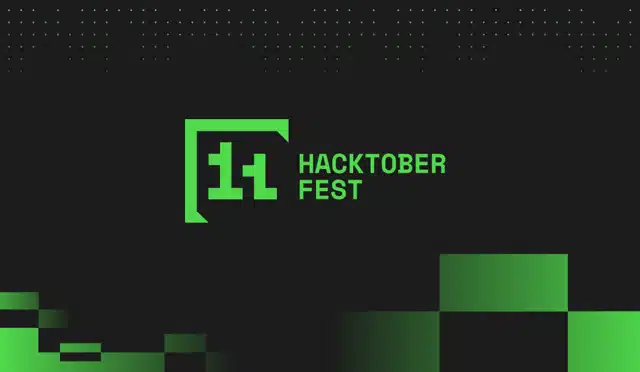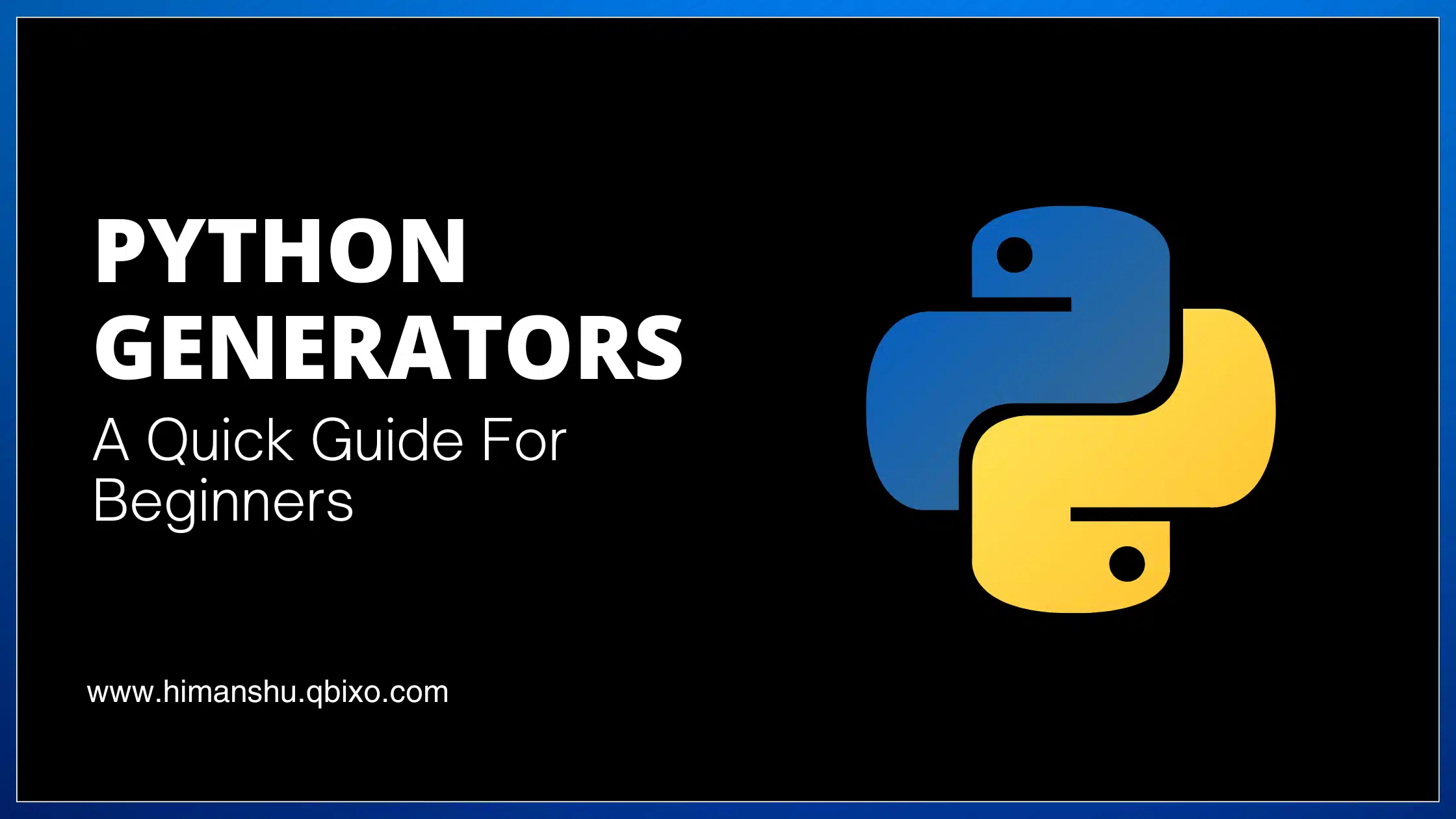Django and Its Supported Databases: A Comprehensive Guide

Django, a powerful web framework written in Python, offers seamless integration with various databases. Choosing the right database depends on your project needs. This guide will explore all available databases compatible with Django, how to connect them, incompatible databases, and frequently asked interview questions related to Django database integration.
Supported Databases in Django
|
|---|
PostgreSQL
PostgreSQL is a popular open-source relational database that is fully supported by Django. It's known for advanced features like JSONB support and indexing.
How to Connect:
Install the package:
pip install psycopg2In your
settings.py:DATABASES = {
'default': {
'ENGINE': 'django.db.backends.postgresql',
'NAME': 'your_db_name',
'USER': 'your_db_user',
'PASSWORD': 'your_password',
'HOST': 'localhost',
'PORT': '5432',
}
}MySQL/MariaDB
MySQL and its fork MariaDB are widely used due to their speed and ease of use. Django supports both databases.
How to Connect:
Install the package:pip install mysqlclientIn your
settings.py:DATABASES = {
'default': {
'ENGINE': 'django.db.backends.mysql',
'NAME': 'your_db_name',
'USER': 'your_db_user',
'PASSWORD': 'your_password',
'HOST': 'localhost',
'PORT': '3306',
}
}SQLite
By default, Django uses SQLite, a lightweight database that stores data in a single file. It’s perfect for small projects or during development.
How to Connect:
No additional installation is required. In yoursettings.py:DATABASES = {
'default': {
'ENGINE': 'django.db.backends.sqlite3',
'NAME': BASE_DIR / 'db.sqlite3',
}
}Oracle
Oracle is a robust, enterprise-level database, but it requires additional configuration.How to Connect:
Install the package:pip install cx_OracleIn your
settings.py:DATABASES = {
'default': {
'ENGINE': 'django.db.backends.oracle',
'NAME': 'your_service_name',
'USER': 'your_db_user',
'PASSWORD': 'your_password',
'HOST': 'your_db_host',
'PORT': '1521',
}
}
Incompatible Databases
- MongoDB: Django does not support NoSQL databases like MongoDB by default. However, there are third-party packages like Djongo that can help, though they are not officially maintained.
- Cassandra: Like MongoDB, it requires external libraries such as django-cassandra-engine, but it's not officially supported.
How to Connect Multiple Databases
Django also supports multiple databases, allowing you to route queries to different databases in your project.
In settings.py:
DATABASES = {
'default': {
'ENGINE': 'django.db.backends.postgresql',
'NAME': 'db1',
},
'secondary': {
'ENGINE': 'django.db.backends.mysql',
'NAME': 'db2',
}
}
To route queries to a specific database:
from django.db import connections
with connections['secondary'].cursor() as cursor:
cursor.execute("SELECT * FROM table_name")
FAQs
Que 1. What are the supported databases in Django?
Ans. Django supports PostgreSQL, MySQL, SQLite, and Oracle.
Que 2. How do you configure a PostgreSQL database in Django?
Ans. By installing the psycopg2 package and updating the DATABASES dictionary in settings.py.
Que 3. Can you use MongoDB with Django?
Ans. MongoDB is not officially supported by Django, but third-party packages like Djongo can be used.
Que 4. How does Django handle multiple databases?
Ans. You can configure multiple databases in the DATABASES setting and route queries manually or automatically.
Que 5. What is the default database in Django, and why?
Ans. SQLite is the default database due to its simplicity and because it requires no additional configuration.
About Author
Latest Blogs

Mastering C#: Your Ultimate Guide to Learning C# Programming
Introduction to C#C# (pronounced "C sharp") is a versatile and powerful programming language developed by Microsoft. Launched in the early 2000s, it is primarily used for building Windows applications, web services, and games. With its clean syntax and object-oriented principles, C# has become one of the most popular programming languages worldwide.Why Learn C#?Versatility: C# is used in various domains, from desktop applications to cloud-based services.Strong Community: With a robust community …

A Complete Guide to Hacktoberfest 2024: How to Register, Contribute, and Make the Most of It
Hacktoberfest is back for 2024! This annual event encourages developers worldwide to contribute to open-source projects. Whether you're a seasoned open-source contributor or a newcomer, this guide will walk you through the process of getting started, making contributions, and maximizing your participation in Hacktoberfest 2024. What is Hacktoberfest?Hacktoberfest is an event held every October to celebrate and promote open-source software. DigitalOcean organizes it in partnership with other tech companies and open-source …

Django and Its Supported Databases: A Comprehensive Guide
Django, a powerful web framework written in Python, offers seamless integration with various databases. Choosing the right database depends on your project needs. This guide will explore all available databases compatible with Django, how to connect them, incompatible databases, and frequently asked interview questions related to Django database integration.Supported Databases in DjangoPostgreSQLMySQLMariaDBSQLiteOraclePostgreSQLPostgreSQL is a popular open-source relational database that is fully supported by Django. It's known for advanced features like …

Python Generators: A Comprehensive Guide with Examples, Use Cases, and Interview Questions
IntroductionIn Python, generators provide a powerful tool for managing large datasets and enhancing performance through lazy evaluation. If you’re aiming to optimize memory usage or handle streams of data efficiently, understanding Python generators is crucial. This blog will cover what Python generators are, how they work, their advantages, scenarios where they shine, and some common interview questions. Whether you're a seasoned developer or new to Python, this guide will help …
Social Media
Tags
#Python
#Django
#Database
#Django5
